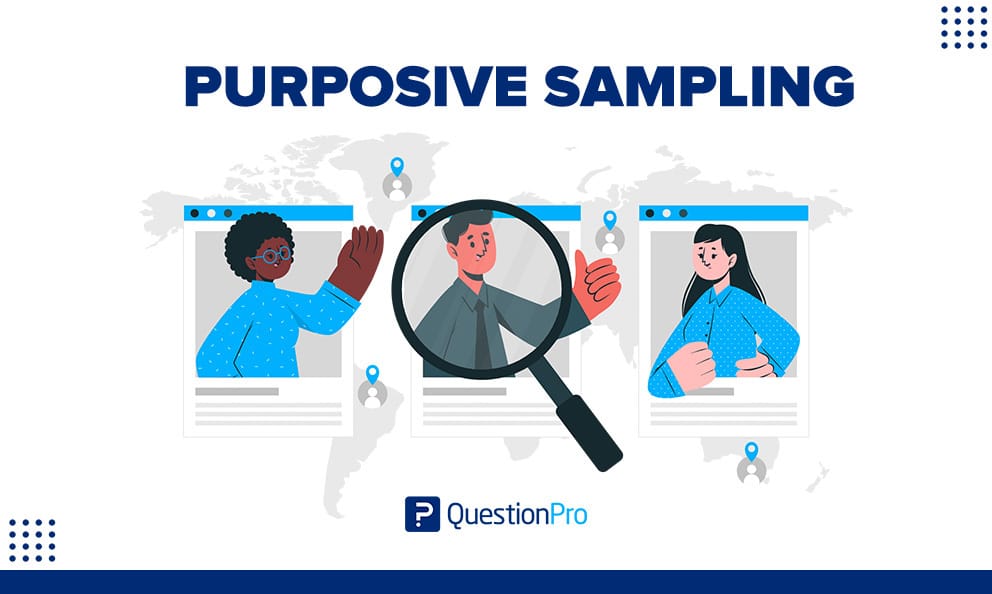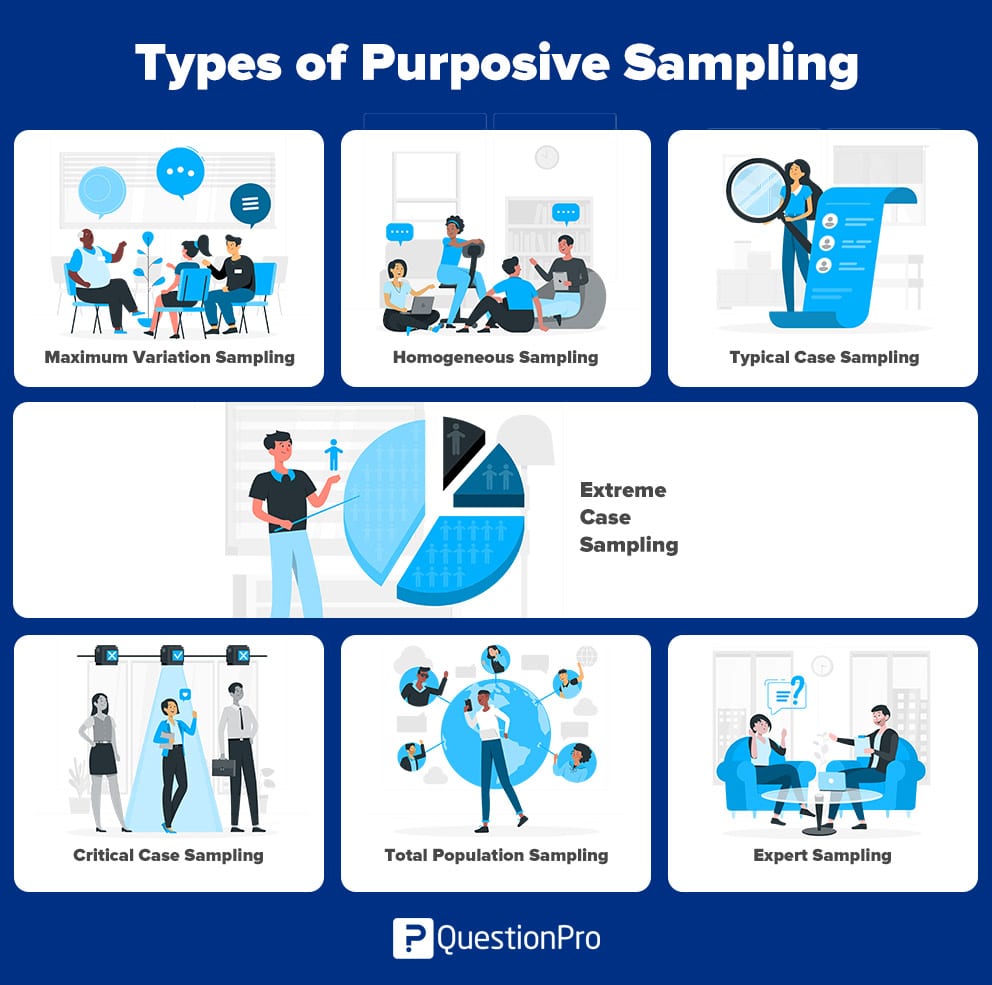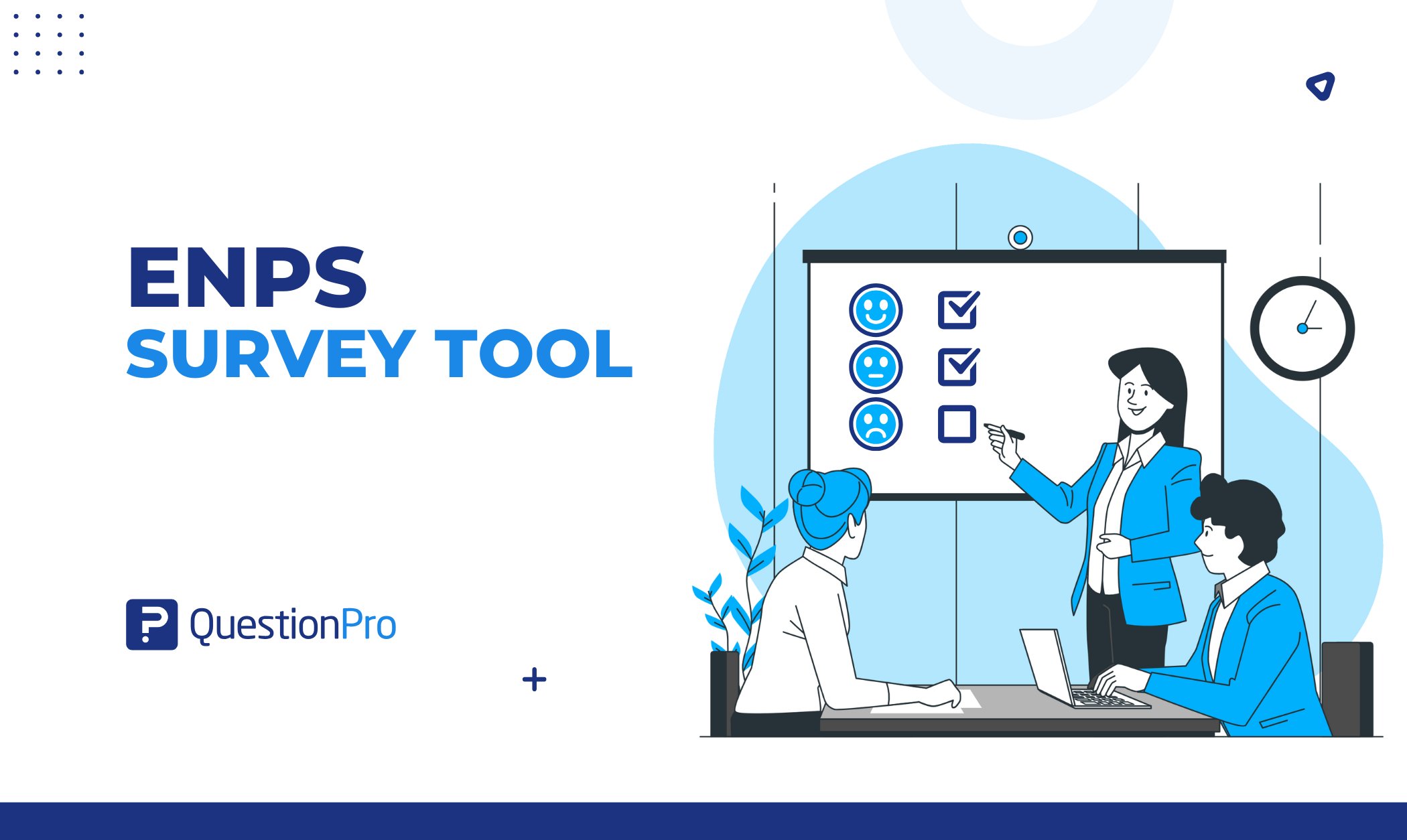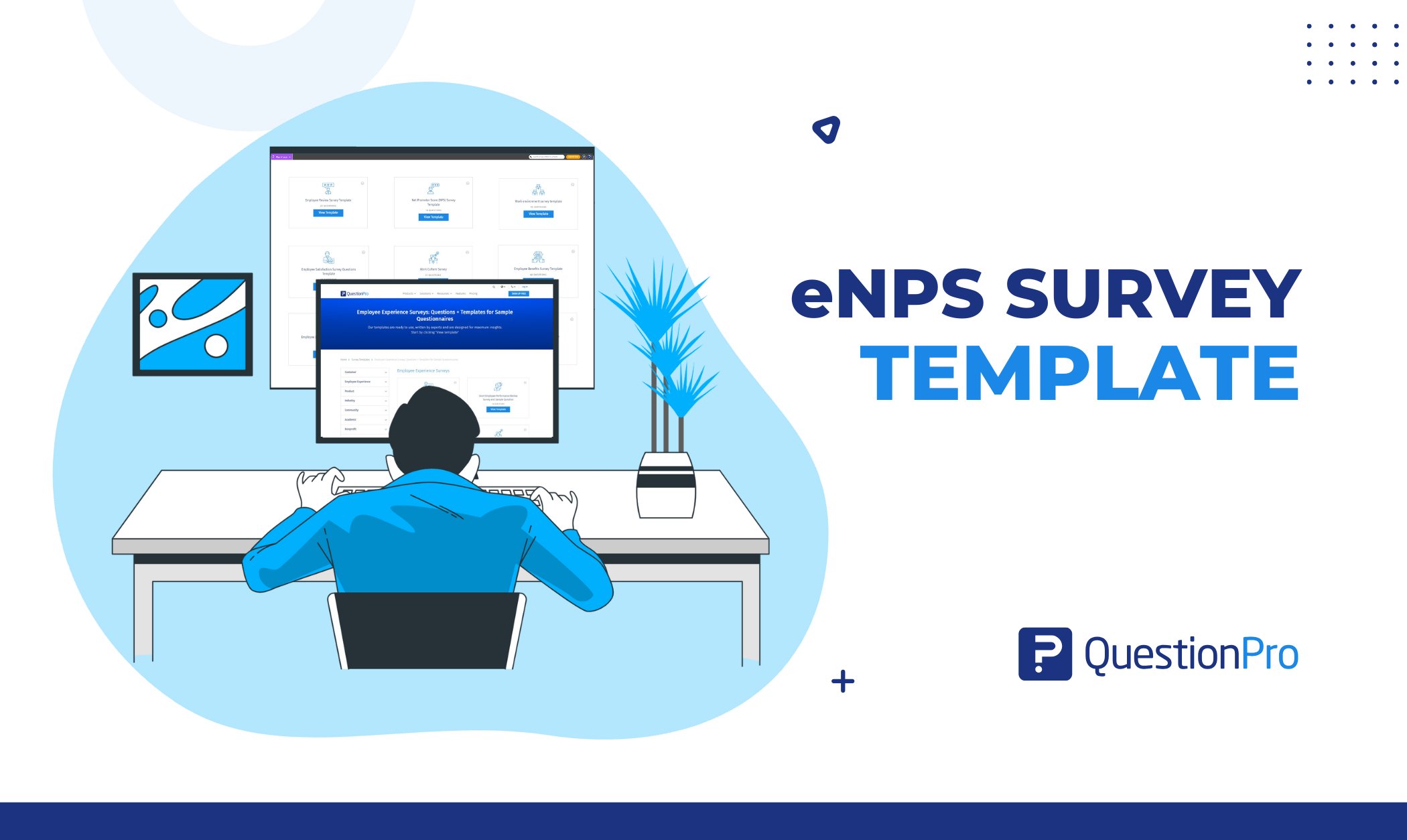
Purposive sampling requires researchers to have prior knowledge about the purpose of their studies so that they can accurately choose and approach eligible participants. This is collected according to the requirements of the test, survey, or research that it’ll be used for.
What is purposive sampling?
Purposive sampling is a technique in which the person conducting the research relies on their judgment to choose the members who will be part of the study. It is a type of nonprobability sample, and it’s also referred to as a judgmental or expert sample.
A purposive sample is a non-randomly selected and typically smaller subset of the population intended to represent it logically. This can be done by understanding the population’s background by selecting a sample that portrays those variations.
Researchers use sampling methods when they want to access a particular subset of people, where all the survey participants are selected to fit a specific profile.
Why purposive sampling?
Purposive sampling is a random sampling methodology where the sample group is targeted to have specific attributes. This method can be used in many populations, but it is more effective with a smaller sample size and a more homogenous population. Sampling is beneficial because the researcher can pore over all of the data.
- The researcher can select an accurate and cost-effective sample by selecting people or points based on their knowledge.
- It enables the collection of qualitative response data that produces a more robust understanding of a topic with precise results.
- There is no randomness in this sampling method. The sampling method used is highly accurate and relevant in the context of research, survey, or experiment.
- Targeting project-oriented demographics becomes easy with purposive samples.
- The margin of error here is low. The selection process is accurate and efficient as they are chosen based on the appropriate qualities.
- It is best to use sampling if you want to find averages in data.
- Using purposive samples can create a substantial result in real-time, as the people have specific knowledge about the research.
LEARN ABOUT: Simple Random Sampling
Advantages and disadvantages of purposive sampling
While each type of this sampling has there own advantages and disadvantages, there are some general advantages and disadvantages of it, which are listed below:
Advantages
- One of the major advantages of purposive sampling is the different types of sampling techniques, from homogeneous sampling to critical case sampling, that can be used to achieve qualitative research design.
- With the help of purposive sampling, it’s easier to generalize your sample than a random sample where not all participants have the characteristic you are studying.
- The margin of error with the purposive sampling is low
- It is cost-effective and can produce substantial results in real-time.
- Helps to avoid sampling errors.
Disadvantages
- A vast array of inferential statistical procedures are present in this structure, thus making these statistics invalid.
- As the participants are aware that they are a part of the research project, bias is possible.
LEARN ABOUT: Survey Sampling
How to conduct Purposive Sampling
There are seven ways of conducting the purposive sampling method, as discussed below:

1. Maximum Variation Sampling
This is also known as heterogeneous sampling. It is a purposive sampling technique that captures various customer perspectives of your study of interest.
2. Homogeneous Sampling
Homogeneous sampling is a purposive sampling method that is the opposite of the maximum variation method. With homogeneous sampling, a group of people of the same age, gender, background, or occupation will be chosen. It is often used when researching a specific trait, feature, or area of interest.
3. Typical Case Sampling
Typical case sampling is used when the researcher or evaluator wants to study a phenomenon related to the parent sample’s ordinary members. For example, suppose a survey taker wants to understand how inflation affects people with average or low income. In that case, only average or low-income earners will be selected from the overall sample.
4. Extreme Case Sampling
Extreme case purposive sampling is used to study the outliers from a set norm for a particular phenomenon or trend.
5. Critical Case Sampling
Critical case purposive sampling selects one information-rich case to represent the population. A researcher expects the information-rich case to provide details that apply to other similar cases by studying it.
6. Total Population Sampling
Total population purposive sampling is a way of carrying out sampling where the entire population carrying one or more shared characteristics is examined or surveyed. These attributes can be specific experience, knowledge, or skills.
7. Expert Sampling
Expert purposive sampling is used when the researcher needs to obtain knowledge from individuals with particular expertise. This skill may be necessary during the starting phase of qualitative research design because it can help understand new areas of interest.
Purposive Sampling Example
Purposive sampling can be used in educational research. Suppose a researcher wants to collect feedback from students on the pedagogical methods in their school. The researcher will select the brightest students who can provide relevant information for systematic investigation.
LEARN MORE: Population vs Sample
Conclusion
This kind of sampling depends upon the availability of the relevant individuals within a population group to provide valuable data. This sampling process will waste time and resources if researchers cannot find enough people or units that meet their defined criteria.
It aims to find a range of participants that meet pre-determined definitions to offer more insight into a specific project. With QuestionPro Audience Panel and Services, we can target niche demographics for any specific research by sending out surveys.
Authors: Anubhav Pratap Singh & Pratik Jadhav





![[CX]-TCXT-closing-the-loop](https://www.questionpro.com/blog/wp-content/uploads/2025/06/CX-TCXT-closing-the-loop.jpg)

